Let's say I have an Doctrine's (version 2) entity as follows:
<?php
namespace AppBundle\Entity;
use Doctrine\ORM\Mapping as ORM;
/**
* User
*
* @ORM\Table(name="users")
* @ORM\Entity
*/
class User {
/**
* @var integer
*
* @ORM\Column(name="id", type="integer")
* @ORM\Id
* @ORM\GeneratedValue(strategy="IDENTITY")
*/
private $id
/**
* @var string
*
* @ORM\Column(name="name", type="string", length=50, nullable=false)
*/
private $name;
/**
* @var string
*
* @ORM\Column(name="group_id", type="string", length=6, nullable=true)
*/
private $groupId;
// Getters and setters...
}
Now, I would like to manage User's relation to Group, but with some conditions, like:
- returning
NULL(or some sort of skeleton/template of\AppBundle\Entity\Groupwith fixed values not loaded from database) ifGroupofusers.group_iddoes not exist, even if it is set to a value (no key restrictions set in the database to prevent this behaviour), so some sort of validation/check required - lazy load
Group, when calling$user->getGroup()
I am reading Google on and on and I'm confused of how to achieve that properly (in the line with Doctrine/Symfony way).
I could add a ManyToOne to the entity's class relation like this:
/**
* @var \AppBundle\Entity\Group
*
* @ORM\ManyToOne(targetEntity="AppBundle\Entity\Group")
* @ORM\JoinColumns({
* @ORM\JoinColumn(name="group_id", referencedColumnName="id")
* })
*/
private $group;
But then how to prevent exceptions caused by non-existing foreign keys? I.e. I would like to retrieve user's group details when it is available in my database, but when it is not I do not want Doctrine to throw an exception an crash my application.
People say that using an Entity Manager from within an Entity is a very bad practice and I agree. But I am confused about using Proxy Objects or Inheritance Mapping for this purposes.
It seems like using Models could be the way, but I couldn't find any strong documentation of how to properly implement them in Doctrine2.
Please help if you can. In Kohana it was so, so simple (but immature this way).
EDIT:
@Massimiliano Fedel suggested trying catching an exception in User::getGroup() method, to eventually make non-existed groups return as NULL.
So I have commited this code:
/**
* Get group
*
* @return \AppBundle\Entity\Group
*/
public function getGroup() {
try {
$group = $this->group;
} catch (\Doctrine\ORM\EntityNotFoundException $e) {
$group = null;
}
return $group;
}
Unfortunatelly, it seems that exception cannot be catched this way, because framework exits with an Doctrine\ORM\EntityNotFoundException:
Entity of type 'AppBundle\Entity\Group' for IDs id(999) was not found
EDIT 2:
Below you can find some basing schema of User flow, i.e. why I can not ensure that all Users will have available Groups in my database.
